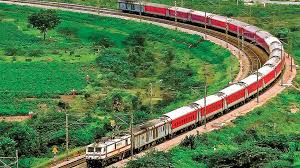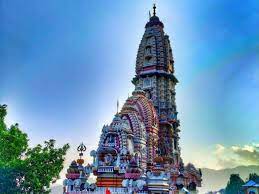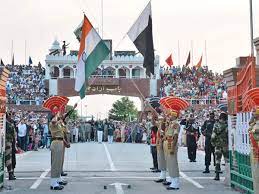THE SPIRITUAL ESSENCE OF MAHA SHIVRATRI

Mahashivratri
is one of the most revered and significant festivals in Hinduism, dedicated to
the mighty "Mahadev," Lord Shiva, the God of Gods. The greatness of
Lord Shiva is celebrated across ancient texts like the Vedas, Puranas, and
other Hindu scriptures. While every day is auspicious for Shiva's worship,
Mondays, the month of Sawan, Shivaratri, and especially Mahashivratri hold
immense spiritual significance.
Lord Shiva,
regarded as the Adidev, is believed to be the originator of Hindu culture,
embodying unparalleled power and omnipresence among all deities. Mahashivratri,
the festival honoring Shiva, is observed on the Chaturdashi of Krishna Paksha
in the month of Magh according to the South Indian calendar (Amavasyant
Panchang). In contrast, the North Indian calendar (Poornimant Panchang)
celebrates it on the Chaturdashi of Krishna Paksha in Phalgun. Despite the
difference in calendars, Mahashivratri falls on the same date according to the
Gregorian calendar.
WHY MAHASHIVRATRI HOLDS GREAT IMPORTANCE?
Mahashivratri
is celebrated with immense devotion and reverence by the followers of
Bholenath. On this auspicious day, Shiva devotees observe a fast and stay awake
throughout the night, seeking the blessings and grace of their beloved deity.
Unlike other Hindu festivals, Mahashivratri is a night of spiritual awakening,
where darkness and obstacles in life are overcome through fasting, meditation,
and introspection. The night holds extraordinary significance as it marks the
union of the divine energies of Lord Shiva and Adishakti.
During this
time, Shiva temples host worship, meditation, and prayers, promoting both
spiritual reflection and social harmony. The festival is steeped in rich
mythological beliefs, with the Linga Purana elaborating on the importance of
fasting and honoring Lord Shiva and his divine symbols, like the Lingam. One
belief highlights the cosmic Tandava dance performed by Lord Shiva on this
night, symbolizing creation and destruction. Another legend suggests that it
was on this day that Lord Shiva and Goddess Parvati were married, making it an
ideal day for couples to pray for marital bliss and for unmarried women to seek
a good husband.
RITUALS OF MAHASHIVRATRI PUJA
On
Mahashivratri, worship Lord Shiva with the following rituals to earn His
blessings:
• Begin by
anointing the Shivling with water or milk from a clay pot. Offer Bel leaves,
Aak-Dhatura flowers, rice, and other offerings. If a Shiva temple is not
nearby, create a clay Shivling at home and worship it.
• Recite the
Shiv Puran and chant the powerful Mahamrityunjaya Mantra or Shiva's sacred
Panchakshar Mantra, "Om Namah Shivaya." A key tradition of
Mahashivratri is staying awake throughout the night in devotion.
• According
to the scriptures, the most auspicious time for worship is during the Nishith
period, though devotees can worship during any of the four prahars based on
their convenience.
• On this
sacred night, Shiva temples echo with the chant of "Om Namah
Shivaya," as devotees sing devotional songs to honor Lord Shiva.
THE STORY OF MAHASHIVRATRI
Mahashivratri
is rich in fascinating stories, and one such tale speaks of Mother Parvati's
intense penance to win Lord Shiva as her husband. It is believed that on the
Chaturdashi of Krishna Paksha in the month of Phalgun, their divine marriage
took place, making this day sacred and celebrated as Mahashivratri.
Another
story, mentioned in the Garuda Purana, tells of Nishadraj, who went hunting
with his dog but failed to find prey. Exhausted and thirsty, he rested by a
pond where a Shivling stood beneath a Bilva tree. In an attempt to refresh
himself, he plucked some Bilva leaves, which unknowingly fell on the Shivling.
While washing his feet, some water splashed onto the Shivling, and as he bent
down to retrieve a fallen arrow, he unknowingly performed a Shiv Puja. After
his death, when Yamdoot came to take him, Lord Shiva’s devotees intervened,
protecting Nishadraj.
This story highlights that even unaware worship on Mahashivratri yields great results, and when performed with true devotion and intention, the blessings of Mahadev are even more powerful.
WHAT TO
EAT DURING MAHASHIVRATRI FAST:
During
Mahashivratri, you can enjoy fruits, milk, curd, sweets, water chestnut
pudding, tapioca khichdi, and buckwheat flour puris. Coconut water and Sama
rice pudding are also excellent additions to your fasting plate.
WHAT NOT
TO EAT DURING MAHASHIVRATRI FAST:
Breaking the fasting
rules can bring unwanted challenges in life. It is strictly advised to avoid
garlic, onion, meat, and alcohol during Mahashivratri. Additionally, refrain
from eating regular food and salt. Always remember to offer these items to Lord
Shiva before consumption, as a mark of respect and devotion.
You may like post

HIDDEN INDIAN SITES WORTHY OF UNESCO
Exploring India’s Sites That Should Be on the UNESCO World Heritage List

A JOURNEY THROUGH COUNTRIES THAT START WITH K
Discovering Countries That Start with K








